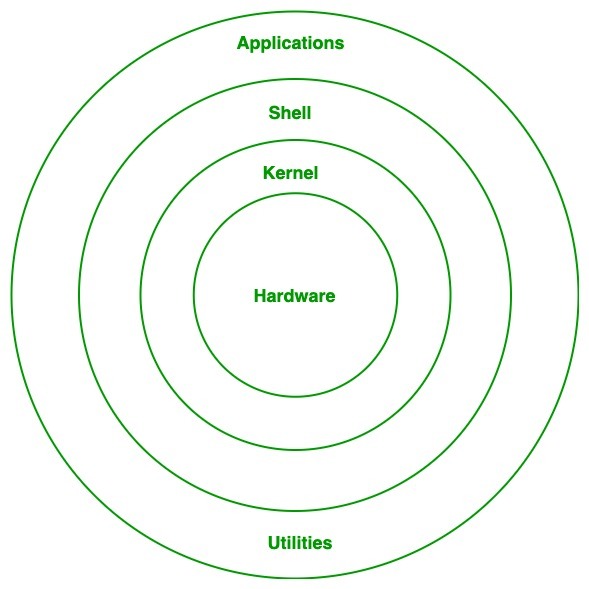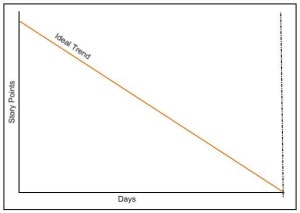What is Linux
Linux is a powerful and flexible family of operating systems that are free to use and share. It was created by a person named Linus Torvalds in 1991. What’s cool is that anyone can see how the system works because its source code is open for everyone to explore and modify. This openness encourages people from all over the world to work together and make Linux better and better. Since its beginning, Linux has grown into a stable and safe system used in many different things, like computers, smartphones, and big supercomputers. It’s known for being efficient, meaning it can do a lot of tasks quickly, and it’s also cost-effective, which means it doesn’t cost a lot to use. Lots of people love Linux, and they’re part of a big community where they share ideas and help each other out. As technology keeps moving forward, Linux will keep evolving and staying important in the world of computers.
Linux Distribution
Linux distribution is an operating system that is made up of a collection of software based on Linux kernel or you can say distribution contains the Linux kernel and supporting libraries and software. And you can get Linux based operating system by downloading one of the Linux distributions and these distributions are available for different types of devices like embedded devices, personal computers, etc. Around 600 + Linux Distributions are available and some of the popular Linux distributions are:
- MX Linux
- Manjaro
- Linux Mint
- elementary
- Ubuntu
- Debian
- Solus
- Fedora
- openSUSE
- Deepin
Architecture of Linux
Linux Architecture has the following components:

Linux Architecture
- Kernel: Kernel is the core of the Linux based operating system. It virtualizes the common hardware resources of the computer to provide each process with its virtual resources. This makes the process seem as if it is the sole process running on the machine. The kernel is also responsible for preventing and mitigating conflicts between different processes. Different types of the kernel are:
- Monolithic Kernel
- Hybrid kernels
- Exo kernels
- Micro kernels
- System Library:Linux uses system libraries, also known as shared libraries, to implement various functionalities of the operating system. These libraries contain pre-written code that applications can use to perform specific tasks. By using these libraries, developers can save time and effort, as they don’t need to write the same code repeatedly. System libraries act as an interface between applications and the kernel, providing a standardized and efficient way for applications to interact with the underlying system.
- Shell:The shell is the user interface of the Linux Operating System. It allows users to interact with the system by entering commands, which the shell interprets and executes. The shell serves as a bridge between the user and the kernel, forwarding the user’s requests to the kernel for processing. It provides a convenient way for users to perform various tasks, such as running programs, managing files, and configuring the system.
- Hardware Layer: The hardware layer encompasses all the physical components of the computer, such as RAM (Random Access Memory), HDD (Hard Disk Drive), CPU (Central Processing Unit), and input/output devices. This layer is responsible for interacting with the Linux Operating System and providing the necessary resources for the system and applications to function properly. The Linux kernel and system libraries enable communication and control over these hardware components, ensuring that they work harmoniously together.
- System Utility: System utilities are essential tools and programs provided by the Linux Operating System to manage and configure various aspects of the system. These utilities perform tasks such as installing software, configuring network settings, monitoring system performance, managing users and permissions, and much more. System utilities simplify system administration tasks, making it easier for users to maintain their Linux systems efficiently.
Advantages of Linux
- The main advantage of Linux is it is an open-source operating system. This means the source code is easily available for everyone and you are allowed to contribute, modify and distribute the code to anyone without any permissions.
- In terms of security, Linux is more secure than any other operating system. It does not mean that Linux is 100 percent secure, it has some malware for it but is less vulnerable than any other operating system. So, it does not require any anti-virus software.
- The software updates in Linux are easy and frequent.
- Various Linux distributions are available so that you can use them according to your requirements or according to your taste.
- Linux is freely available to use on the internet.
- It has large community support.
- It provides high stability. It rarely slows down or freezes and there is no need to reboot it after a short time.
- It maintains the privacy of the user.
- The performance of the Linux system is much higher than other operating systems. It allows a large number of people to work at the same time and it handles them efficiently.
- It is network friendly.
- The flexibility of Linux is high. There is no need to install a complete Linux suite; you are allowed to install only the required components.
- Linux is compatible with a large number of file formats.
- It is fast and easy to install from the web. It can also install it on any hardware even on your old computer system.
- It performs all tasks properly even if it has limited space on the hard disk.
Disadvantages of Linux
- It is not very user-friendly. So, it may be confusing for beginners.
- It has small peripheral hardware drivers as compared to windows.
Frequently Asked Questions in Linux Operating System
What is Linux Operating System?
Linux is an open-source operating system developed by Linus Torvalds in 1991. It provides a customizable and secure alternative to proprietary systems. With its stable performance, Linux is widely used across devices, from personal computers to servers and smartphones. The collaborative efforts of its developer community continue to drive innovation, making Linux a dominant force in the world of computing.
Is There Any Difference between Linux and Ubuntu?
The answer is YES. The main difference between Linux and Ubuntu is Linux is the family of open-source operating systems which is based on Linux kernel, whereas Ubuntu is a free open-source operating system and the Linux distribution which is based on Debian. Or in other words, Linux is the core system and Ubuntu is the distribution of Linux. Linux is developed by Linus Torvalds and released in 1991 and Ubuntu is developed by Canonical Ltd. and released in 2004.
How do I install software on Linux Operating System?
To install software on Linux, we can use package managers specific to your Linux distribution.
For example,
In Ubuntu, you can use the “apt” package manager,
while on Fedora, you can use “dnf.”
You can simply open a terminal and use the package manager to search for and install software.
For example,
To install the text editor “nano” on Ubuntu, you can use the command
sudo apt install nano
Can we dual-boot Linux with another operating system?
Yes, we can dual-boot Linux with another operating system, such as Windows. During the installation of Linux, we can allocate a separate partition for Linux, and a boot manager (like GRUB) allows us to choose which operating system to boot when starting our computer.
How can I update my Linux distribution?
We can update our Linux distributionusing the package manager of our specific distribution. For instance, on Ubuntu, we can run the following commands to update the package list and upgrade the installed packages:
sudo apt update sudo apt upgrade
What are the essential Linux commands for beginners?
Some essential commands for beginners include:
ls: List files and directoriescd: Change directorymkdir: Create a new directoryrm: Remove files or directoriescp: Copy files and directoriesmv: Move or rename files and directoriescat: Display file contentgrep: Search for text in filessudo: Execute commands with administrative privileges
Please refer the link for more details about the commands : Mastering Linux for DevOps Engineers


No comments:
Post a Comment